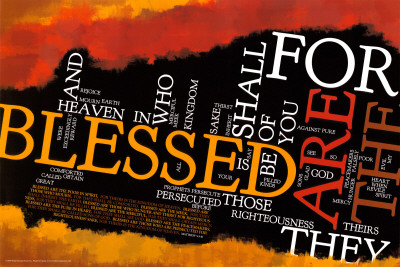Looking at him, Jesus felt a love for him and said to him, "One thing you lack: go and sell all you possess and give to the poor, and you will have treasure in heaven; and come, follow Me." But at these words he was saddened, and he went away grieving, for he was one who owned much property.
And Jesus, looking around, said to His disciples, "How hard it will be for those who are wealthy to enter the kingdom of God kingdom of God kingdom of God
A conversation between an ancient Hebrew prophet and a Hebrew seeker
Scene: A cave at the top of a Himalayan peak. Fog drifts across part of the snow-covered mountain behind it. Before the cave is a ledge which drops down to unknown depths. A SWAMI , who looks remarkably like Jesus, is sitting, cross-legged at the opening of the cave, his eyes closed. A few of his disciples—PETER and JOHN sit behind him, trying to be cross-legged as well, but having difficulty mastering the position. As they scuffle and fight with each other, the SWAMI sits in perfect peace, ignoring their difficulties.
A young YUPPIE appears, climbing up the ledge. He is dressed in a three-piece stylish business suit, clearly very expensive, black shoes shined and the owner of a three-hundred dollar haircut. He is carrying a cell phone and a briefcase. He struggles up the ledge, throwing his briefcase up first, then finally climbing up the ledge. Exhausted, he crawls over to the SWAMI and collapses. The SWAMI doesn’t move a muscle, but PETER and JOHN stare at the man, shocked.
YUPPIE: (Breathing hard) Oh Great… and Knowledgeable… Good… and Holy Swami! I have traveled over many days and suffered many travails…
SWAMI: (Not yet opening his eyes. Speaking in a bored voice.) Who are you trying to impress?
YUPPIE: But Good Swami, I have traveled thousands of miles….
SWAMI: In your private jet plane, flying into Kathmandu.
YUPPIE: And I climbed this mountain…
SWAMI: The rented helicopter dropped you off on the ledge over there.
YUPPIE: Look, Good Swami, I came all the way from the United States
SWAMI: (Opens one eye) There is no one good but God. If you want to address me, “hey you” will do. (Closes his eye)
YUPPIE: (Taken aback) But Swa… But I have come this way to ask you a question.
SWAMI: Just one?
YUPPIE: Yes, just one.
SWAMI: I’ll try to fit it into my schedule.
(Silence for a moment)
YUPPIE: Can I ask?
SWAMI: (Sighs and opens his eyes.) Shoot. Try your best.
YUPPIE: Great Swami…
SWAMI: Get to the point, okay?
YUPPIE: (Wind taken out of his sails.) Um, okay. How can I obtain eternal life?
SWAMI: Eternal life?
YUPPIE: Yes.
SWAMI: Life with God?
YUPPIE: Yes.
SWAMI: Resurrection from the dead?
YUPPIE: Yes…
SWAMI: Inheritance in God’s kingdom?
YUPPIE: Yes!
SWAMI: Peace, security and every good thing?
YUPPIE: Yes, yes, YES!
SWAMI: Have you gone to others to ask them this question?
YUPPIE: Yes, I have gone to a thousand teachers, a hundred professors, a dozen philosophers and a faith healer.
SWAMI: And what did they tell you?
YUPPIE: They told me to obey the commandments.
SWAMI: The commandments of God, eh? What commandments did they mention?
YUPPIE: The usual. Don’t murder, don’t steal, don’t commit adultery, don’t cheat, honor your father and mother. You know, the normal list everyone gives.
SWAMI: Sounds good. Go for it. (Closes his eyes again.)
YUPPIE: (Exasperated) But… but. (Explodes) IS THAT IT?! (SWAMI doesn’t respond.) That can’t be it! I’ve been doing that all my life! It’s just too easy. I know there must be something more. Swami, isn’t there? (SWAMI opens his eyes.) Please, Swami, isn’t there something you haven’t been telling me? I just feel that something is missing. In obeying the commands, I still seem so distant from God. Isn't there something else?
SWAMI: (Has new respect for YUPPIE, and looks at him intently.) If you want to be sure of your salvation, then listen carefully: (YUPPIE leans in to listen) Take your cell phone, and your computers and your plane and your house—sorry, houses— and your stocks and sell it all. Turn it into hard, cold cash. Then, give it away to all the beggars in your home town. Then come back and follow me. (Closes his eyes.)
YUPPIE: (Eyes downcast) Um, Swami?
SWAMI: (Calmly) Yes?
YUPPIE: How can I follow you?
SWAMI: (An eyebrow goes up.) What do you mean?
YUPPIE: I mean… well… you aren’t, uh, going anywhere.
SWAMI: Oh, that. Well, I’ll be travelling down to Kathmandu.
YUPPIE: Ah.
SWAMI: And my disciples will follow me.
YUPPIE: I see.
SWAMI: And I’ll be killed there, you see. (PETER and JOHN jump up, eyes wide.)
YUPPIE: Yes, yes, that’s fine. Just wondering. I do have just a couple more questions.
SWAMI: (Opening both eyes, slightly irritated.) You know, you said that you would just ask me one question and I have been so gracious as to answer three. And now you are demanding more? You are becoming annoying.
YUPPIE: I just need a couple things clarified.
SWAMI: I don’t see how much more clear I can make it. Here, try this for size: Sell your possessions and give to the poor, then come and follow me.
YUPPIE: I think I got the gist of that, but I was just wondering… just to clarify…
SWAMI: Yes, what is it?
YUPPIE: Well, perhaps I could just keep the physical things, but not be overly attached to them. You know, like share them with others—my friends perhaps. And I won’t worry so much if I lose them.
SWAMI: (Irritated) Which part of “Sell your possessions” did you not understand? That should be clear, I think. If you really want to not be “overly attached” to your possessions, there’s only one solution—get rid of them. That should do it, I think.
YUPPIE: But I worked hard for these possessions! I made the right decisions, I struggled to get where I am. Why should I give my own stuff to anyone?
SWAMI: You worked, yes. But the wealth you received came from God. Others work just as hard as you, and harder, but do not have as much as you do. Your wealth is a gift. A loan, actually, and God is seeing what you will do with what you have received. And God’s command is this: “Stop spending your excess wealth on yourself and those who love you. Give it to the poor, and I will take that wealth and give it back to you a hundredfold in the final day.”
YUPPIE: But the poor! They don’t deserve that money! They’ll just waste it all on drugs and alcohol…
SWAMI: While you waste it on real estate and stock speculations. No difference, really. Besides, how many poor do you really know?
YUPPIE: Well, I see the guys holding signs on the streets…
SWAMI: How many of them have you met? Even talked to?
YUPPIE: I talked to some of them…
SWAMI: And how many of them did you listen to? How many of them did you take the time to hear their stories, to find out who they really are? How many of them did you spend a day with to see their normal activities? How do you know what they would do with the money if they had it?
YUPPIE: Well, statistically…
SWAMI: Statistically! Means and averages are the idols of the modern age—that which we hide behind to avoid doing what is right. If you want to know who someone is, plug them into a category, and suddenly you know their whole life story, thanks to the modern miracle of Probability! No one exists until they are a blip on the National Per Capita Production chart! No one has a need until their needs are polled, assumed, measured and churned out on the meat grinder of reality! What does any of that have to do with real life? What does it have to do with real people? The next time you walk your street, look at the man collapsed in the alley north of you. He does drink, but his dream is to own a truck and tools in order to have a landscaping business. He already has a couple customers to prove his ability, but he just needs a hand up and he will have a whole new life. You know that filthy girl who you ran into downtown last year, whom you assumed was drunk or high? Actually, she has a medication which she cannot afford, which makes her well, if not completely independent. She has never had more than a beer her whole life, and has never taken illegal drugs. Everyone just assumes she had because she hangs out silently in AA meetings for the warmth and coffee in the morning. If you worship statistics so much, here is one—no more than 50 percent of the homeless people in your town are regular users of alcohol or illegal drugs. And yet you want to reject the whole lot of them, to ignore God’s commands, to throw away your salvation—why? Because of your assumption. Because of your judgment.
YUPPIE: (Shamefaced) I don’t know what to say…
SWAMI: (Outraged.) Say nothing! You came all this way to find out the truth. And in finding the truth, you throw it back in my face. Accept simply this: “Sell your possessions and give to the poor. Then come and follow me.” That’s your answer. Take it or leave it.
YUPPIE: (Silently, reluctantly, picks up briefcase and carries it and himself over the ledge again.)
(There is a brief silence as PETER and JOHN get over their shock at the statements of their teacher. This also allows us to pause before the conclusion of our short play. It’s good to take a break from the action for a moment, isn’t it?)
PETER: Master, weren’t you hard on him?
SWAMI: It may seem so, but I was doing him a favor. He is a good kid.
JOHN: You didn’t make him sound so good.
PETER: Yeah, you told him off.
SWAMI: (Smiles) I was treating him as a disciple. Didn’t you recognize my tone? If he was going to break with the wealth that was choking away his life, he would have to have a wake-up call.
PETER: You certainly treated him a lot harsher than you did us.
SWAMI: Do you realize how difficult it is for a wealthy person to have eternal life? It is impossible.
PETER: What do you mean? Impossible? But the wealthy have the leisure to study righteousness. The wealthy have the leisure to pray when they want. The wealthy can give huge amounts to the needy.
SWAMI: You do not understand them, do you? Yes, they have the opportunity, but they don’t take them. The wealthy allow their wealth to take over their whole lives. They could pray, but they look to the caring of their riches, instead, for in that they find their salvation. They could study righteousness, but they study the texts that assist them in increasing their wealth. They could give to the poor, but they have become so attached to their wealth, that they dare not part from it. Their wealth becomes their god. Wealth is their security, the source of their pleasure, the basis of their health and well-being, the means of living in their society. The only way for them to truly be obedient to God is to get rid of it and give it to God’s program of assisting the poor.
JOHN: But, if it is so difficult for the wealthy, what about us? What about anyone?
SWAMI: Yes, God’s eternal life is impossible for just about anyone—especially the wealthy. But God is in the business of accomplishing the impossible. Come, let us pray for this young man.

















